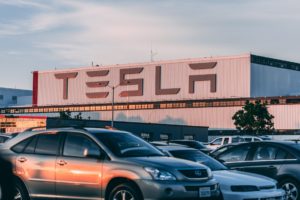
The ultimate aim of Musk’s 73.5 million share purchase worth $3 billion based on the closing price Friday, is not clear. Yet in late March Musk, who has 80 million Twitter followers and is very active on the site, questioned free speech on Twitter and whether the platform is undermining democracy.
The regulatory filing Monday says Musk bought the shares on March 14, describing him as a long-term investor looking to minimize his buying and selling of the shares. That means that Musk acquired the shares before beginning his public discourse on the First Amendment and Twitter.
Yet Musk has also raised the possibility, publicly before his massive and loyal Twitter following, of starting a rival social media network.
Industry analysts are skeptical about whether the mercurial CEO will remain on the sidelines for long.
“We would expect this passive stake as just the start of broader conversations with the Twitter board/management that could ultimately lead to an active stake and a potential more aggressive ownership role of Twitter,” Dan Ives of Wedbush Securities said in a client note early Monday.
Twitter’s stock surged more than 22% at the opening bell Monday. The company did not immediately respond to a request for comment.
Musk told his more than 80 million followers on Twitter that he was “ giving serious thought ” to creating his own social media platform and has clashed repeatedly with financial regulators about his use of Twitter.
His Twitter stock purchase comes as Musk is locked into a bitter dispute with U.S. securities regulators over his ability to post on Twitter. Musk’s lawyer has contended in court motions that the U.S. Securities and Exchange Commission is infringing on the Tesla CEO’s First Amendment rights.
In October of 2018, Musk and Tesla agreed to pay $40 million in civil fines and for Musk to have his tweets approved by a corporate lawyer after he tweeted about having the money to take Tesla private at $420 per share.
The funding was far from secured and the electric vehicle company remains public, but Tesla’s stock price jumped. The settlement specified governance changes, including Musk’s ouster as board chairman, as well as pre-approval of his tweets. The SEC brought a securities fraud charge, alleging that Musk was manipulating the stock price with his posts.
Musk’s lawyer is now asking a U.S. District Court judge in Manhattan to throw out the settlement, contending that the SEC is harassing him and infringing on his First Amendment rights.
Early in March, Musk asked Judge Alison Nathan to nullify an SEC subpoena and throw out the settlement agreement. His lawyer, Alex Spiro, said the SEC has used the court agreement “to trample on Mr. Musk’s First Amendment rights and to impose prior restraints on his speech.”
The SEC responded in a court motion, saying it has legal authority to subpoena Tesla and Musk about his tweets, and that Musk’s move to throw out the settlement is not valid.
The SEC disclosed that it is investigating Musk’s Nov. 6, 2021 tweets that asked followers whether he should sell 10% of his Tesla stake. The commission confirmed that it issued administrative subpoenas while investigating whether Musk and Tesla are complying with disclosure controls in the 2018 agreement.
The commission also is investigating whether Tesla described accurately in public filings with the agency whether it complied with the controls.
The commission maintains that the subpoenas were lawful, and that Musk isn’t following proper legal procedure to challenge them. SEC attorney Melissa Armstrong called Musk’s challenge “frivolous,” and pointed out that Musk and Tesla agreed to have his tweets pre-approved by other company officials.
“Courts have long recognized that ‘congress has vested the SEC with broad authority to conduct investigations into possible violations of federal securities laws and to demand production of evidence relevant to such investigations,’” Armstrong wrote.
The subpoenas, issued under seal, come from a formal order by the commission authorizing the investigation. They seek all written communications concerning the Nov. 6 tweets and whether they were shown to Tesla lawyers for pre-approval.
Musk attorney Spiro has asked for verbal arguments in the case.
Musk’s revelation about his stake in Twitter shares comes two days after Tesla Inc. posted first-quarter delivery numbers. While the company delivered 310,000 vehicles in the period, the figure was slightly below expectations.
Shortly after the November tweets about the Tesla stock sale Musk began selling off shares, and he wrote on Twitter that the sale would go to pay tax obligations on stock options. Analysts estimate his tax obligation at $10 billion to $15 billion. But some of the money could have been used to buy the Twitter stake.
So far he has sold more than 15 million shares worth roughly $16.4 billion. With some sales in late December, Musk is close to selling 10%.
Source: APNews


